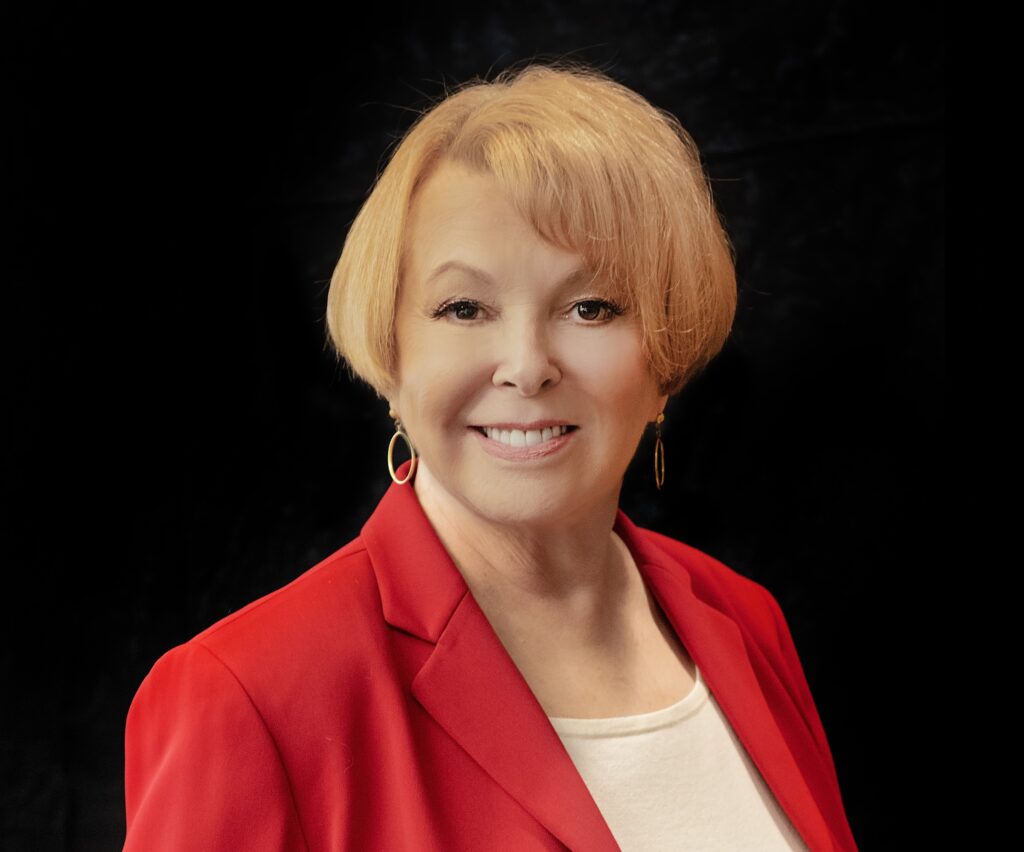Ten honored as Women of Influence

CYNTHIA EISENHAUER
Cynthia Eisenhauer is an agent of change. Her peers have said so, but more importantly, her actions for the past 30 years have demonstrated how she applies progressive ideas toward her goal.
Starting back when she was a first-year English teacher in a rural Kansas school, Eisenhauer drew on her youth and creativity to spark a love for literature in her students. Her focus remained on youth when she moved to Des Moines with her husband and became a public information officer for a federal program focused on getting high school dropouts to complete their education.
“It was a challenge, but if I used my imagination, I could usually figure out a way to get them interested,” Eisenhauer said. “I got to see what a difference a public-service program could make in a person’s life, and I decided to go back to get my master’s in public administration.”
For the past 20 years, Eisenhauer has worked in state government. She learned an important lesson amid the chaos of the Floods of 1993, a realization that set the tone for her career up to now. When the Iowa Workforce Development center flooded, as state director, she helped set up a temporary headquarters at the state fairgrounds. Armed with nothing more than blank sheets of paper and pencils, her staff took down information and manually issued unemployment-benefit checks. The paperwork, required by the government, could come later, they reasoned.
“The Flood of ’93 was a turning point for me in learning how nimble and responsive government really can be, and it taught me that you can cut through red tape to get things done when you need to,” Eisenhauer said.
In 1999, Eisenhauer was appointed director of the Iowa Department of Management by Gov. Tom Vilsack, and as his term is in its final two years, she is more determined impress her spirit of change on others. From her experience in working with a tight budget, state workers can be creative and resourceful, and not afraid of change.
“What I really hope to accomplish is to ignite this flame of change and innovation, so that even after Vilsack/Pederson’s administration is over, state employees will have the ability to see where government can be streamlined and service can be improved and money can be saved,” she said.
DAWN TAYLOR
Having grown up in Sioux City, Dawn Taylor can recall when the IBP packing plant opened, bringing an influx of Latino workers and their families to the community. Yet by the time she graduated from high school some 12 years later, not one Latino child was among her classmates.
“I saw that the bridges weren’t being built, and if you’re not building bridges, you’re going to miss the world,” said Taylor, a community activist and volunteer who has been a tireless advocate for Iowa’s Latino communities. The Des Moines resident has served for the past year on the Iowa Commission of Latino Affairs, and is vice president of the Hispanic Educational Resource Center, which operates a bilingual preschool and provides outreach assistance to families.
Taylor, 48, currently serves on the boards of the Greater Des Moines Community Foundation and the Red Cross of Central Iowa Foundation, and is a regent of Augsburg College in Minneapolis. She is an adviser to the Center for New Communities and the Iowa Project, an immigrant rights organization geared toward Latinos. She has served as an advocate for Latinos who were in the process of being deported, and has assisted them in finding resources and guidance.
Taylor has traveled extensively to a number of Latin American countries, which has given her a perspective on the uphill battle Latinos face in conquering language and cultural differences as Iowa residents. For her doctoral thesis in education from Drake University, she wrote about Latino immigration to the Midwest, particularly to Iowa and Des Moines.
“The thing that I see that bothers me the most is how underutilized Latinos are, and it all comes down to a language barrier,” she said. At the same time, she added, it’s the Spanish language that binds Latinos and their culture together, Taylor said.
One of Taylor’s dreams is to establish a bilingual elementary school in the community at which Latino and English-speaking children would learn Spanish together.
“When children learn a language, they bring along their parents,” she said. “Though I wouldn’t limit it to Spanish, I think that’s a good place to start.”
ELLEN GAUCHER
Ellen Gaucher has learned the importance of listening and whom to listen to. Early in her professional development, she formed a close bond with the dean of the nursing school she was attending.
“She encouraged me both personally and professionally, and she was never too busy to talk about issues and concerns,” Gaucher said. Through this relationship, Gaucher learned that a mentor can be most helpful not by giving advice, but by acting as a “sounding board” to help you validate that your ideas or concerns are legitimate.
Even after she graduated, Gaucher would talk to her former nursing school dean, especially when a career decision needed to be made, and she has had to make a lot of them. In her health-care career, she has transitioned from nurse to educator to practitioner to hospital administrator to vice president of a health insurer.
“As a practitioner, one of the physicians in the clinic where I was working said that I should apply to be the director of nursing for the University of Massachusetts ambulatory care program and try to change it forever,” Gaucher said. “I understood what was necessary in order to provide good patient care, and he thought I could make a difference in the management of the clinics.”
Gaucher took this physician’s words to heart and started on her path of leadership. As an administrator, she demonstrated the ability to change patient care and streamline hospital procedures. After four years of doing this in Worchester, Mass., she was recruited by the University of Michigan to do the same thing in Ann Arbor. Later, her boss in Michigan, John Forsyth, would ask her to follow him to Des Moines to work at Wellmark Inc. Today, Gaucher is Wellmark’s group vice president for operations, quality and customer satisfaction. Many of the vice presidents she oversees are women, and when they approach her with a problem, she thinks of her early mentor.
“I feel really good when someone who comes in to talk with me succeeds with a project or an idea or they’ve been able to turn a difficult situation in to a positive one,” Gaucher said. “I think that for me, it’s kind of this recognition that I was helped tremendously, and I would like to help other people to be successful as well.”
GLORIA BURNETT
Walk through the front gates of Blank Park Zoo and Gloria Burnett’s work and dedication surround you, whether it is noticeable or not. Burnett and her husband, Robert, continue to be two of the zoo’s staunchest supporters. Their contributions in recent years made the Myron and Jackie Blank Discovery Center a reality. She helped finalize plans for the Discovery Center through her hands-on approach.
“It’s quite an attractive place,” said Pat Henson, who serves as a liaison between the Blank Park Zoo Foundation’s board of directors and the zoo staff. “We feel Gloria had a big hand in that.” Burnett had her hands in the design of the zoo gift shop and other elements of the Discovery Center.
Henson said the Discovery Center is “one of the most outstanding and visible results of Gloria’s efforts…” and said it allowed Blank Park Zoo to be open year-round. She also contributed to the zoo’s Zebra Clock Plaza and special events area.
Burnett has worked tirelessly to establish the Zoo as a major attraction that contributes to the quality of life for Central Iowans.
A native of Guthrie Center, Burnett was appointed to the zoo foundation’s board of directors in 1993 and served until this year, when she requested to be moved to the Advisory Council. She was board president in 2000 and 2001 and carried out fund-raising efforts for the foundation’s capital campaign and annual giving programs.
“She was very, very instrumental in personally talking to businesses and individual donors to get money,” Henson said.
Burnett and her family lived in several cities throughout the United States during her husband’s career. He retired in 1992 as chairman and CEO of Meredith Corp. Their final move to Des Moines gave Burnett the chance to take on an active role as a community philanthropist.
Burnett is a substantial contributor and supporter of VSA arts of Iowa, a non-profit organization that uses the arts to improve the ability of children and adults to express themselves and become productive and contributing members of society. She was on the board of the Des Moines Ballet in the 1980s, where she worked with the other board members to overcome a chronic funding problem.
“Gloria has a magnetic personality,” said Henson. “She’s one of these people who inspires you to do things and be a part of them through her enthusiasm.”
JANIS RUAN
Downtown Des Moines and Fleur Drive have received face lifts in recent years, improving the aesthetics of the area and fostering pride among community members.
“It takes a small initiative and sometimes it grows into something marvelous,” said Janis Ruan, a 2004 Woman of Influence.
Under Ruan’s leadership, the Mayor’s Landscape Task Force has helped plain-Jane street corners and medians take on new life with much-needed updates and a touch of color.
Flowerpots have been filled, benches refinished and medians spruced up. Fund-raising efforts have garnered $2.7 million of the project’s $3.2 million goal.
“It’s always important to take a role to improve the quality of life for everyone,” she said. “We want to do good things for the generation-in-waiting.”
A member of the Des Moines Founders Garden Club, she was inspired by a featured speaker who had assisted in downtown Chicago beautification efforts and told the group “one small project can create a wonderful momentum,” Ruan recalled.
From 2001 to 2003 she was chairwoman of the Mayor’s Landscape Task Force, which spearheaded beautification efforts throughout downtown Des Moines and along Fleur Drive, a gateway from Des Moines International Airport to the heart of the city.
“You never get a second chance to make a first impression,” Ruan said. The task force is hopeful that momentum from this initiative will carry over to projects along Locust and Walnut streets downtown.
“I really truly have enjoyed every minute of it,” she said, “and I have met so many wonderful people along the way.” Raised in Des Moines, Ruan graduated from Roosevelt High School and studied journalism at the University of Iowa. She worked for Younkers Inc. before marrying John Ruan III in 1970. Their children, John Ruan IV and Rachel McLean, both live in Chicago.
Volunteerism has been a part of Ruan’s life for more than 30 years, from Cub Scouts to the Junior League of Des Moines.
She sits on the board of directors of the Salisbury House Foundation and the Greater Des Moines Community Foundation, having partnered with that philanthropic organization to implement the task force’s beautification efforts. She has been a board member for the YWCA of Greater Des Moines, the Des Moines Metro Opera, Orchard Place and the Des Moines Ballet.
“You name it, I’ve done it,” she said.
KAY RUNGE
For Kay Runge, director of the Des Moines Public Library, overseeing the construction of the city’s new central library is “really the crowning jewel” of her career, she said.
Des Moines is among a number of cities throughout the country that are enjoying a renaissance of support for their libraries, said Runge, who was recruited to the capital city in April 2001 to oversee the development of the new central library. The $48 million project also includes renovation at each of the current six branches and the construction of a new southeast Des Moines branch within the next six years.
“I am quite honored to be a part of this renaissance,” said the Davenport native, who prior to being recruited to Des Moines served as director of the Davenport Public Library, where one of her major accomplishments was opening a new branch. She has also served as director of the Scott County Library System, where she oversaw the construction of a new library in the town of Eldridge.
“Anyone can better themselves by using the public library,” Runge said. “It’s kind of been part of my life that by helping yourself, you can do what you want to do, and you have the resources.”
After earning a bachelor of science in history education from the University of Iowa, Runge decided to stay at school to get her master’s degree in library science “while I was still in studying mode,” she said.
In 2000, she was named president of the Public Library Association, a national organization made up of more than 10,000 public librarians. That same year, she was named Member of the Year of the Iowa Library Association. She has been listed on the National Advocacy Honor Roll by the American Library Trustee Advocates and the American Library Association, and in 1984 received the Iowa Education Media Association Intellectual Freedom Award.
In addition to her local library work she has been a guest lecturer at the University of Iowa Library School and serves on the university’s Library School Advisory Board and the Dean’s Advisory Council of the College of Liberal Arts and Sciences.
Among numerous community activities, she sits on the board of directors of Wells Fargo Bank and is a member of the Rotary Club of Des Moines and the Nexus Club.
MICHELE GRISWELL
Women fought for opportunities to be educated, then battled to be accepted into the professions and struggled to achieve positions of leadership. “The next step is philanthropy,” said Michele Griswell. In her view, women who have acquired some wealth “need to be very direct about how they channel their resources.”
She has turned that belief into an important role with the Women’s Leadership Initiative and its local effort to help disadvantaged babies and toddlers. The WLC acts by identifying a community’s most pressing need.
“Here, no question, it was early-childhood issues,” Griswell said. “A plan was in place but needed funding. We came up with the idea of women each giving $2,500, and that money was committed to improving the quality of seven of the city’s day-care centers. These are the places where the poorest among us are cared for. We offered training for teachers and improvements in the facilities so these little ones can start to catch up on things that kids with more advantages already have.”
Griswell found her role models at home. Her father, who won a Bronze Star during World War II, left a corporate job to become a minister. “When anybody was in trouble, they would call our parents,” said Griswell, one of two sisters. “Not just for advice, but because they might need a hug or a place to stay.”
When Griswell was fresh out of college, she fell in love with teaching. But that career lasted just five years, followed by motherhood and an almost endless series of moves with her husband, Barry. “When we came to Des Moines, it was our 14th move in 17 years of marriage,” she said. They put down roots here, and now Barry is the president and chief executive officer of Principal Financial Group Inc. They’ve known each other since the age of 12, started dating at 16 and have been married for 34 years. “I travel so much now with Barry that I don’t do as much hands-on work except through our church,” Griswell said. “We’re a team. You have to be on the same wavelength, or you don’t stay married for 34 years.”
PEG ARMSTRONG-GUSTAFSON
Peg Armstrong-Gustafson’s leadership and compassion extend to nearly every facet of her life and have touched numerous organizations and individuals throughout Des Moines, say the leaders who nominated her as a 2004 Woman of Influence.
“Peg is a determined, dedicated, effective leader,” wrote John Lawson, chair of the Iowa State University Foundation, which Gustafson served for more than a year as its president and chief executive officer. “She instills pride in her organization and has fun in the face of tough issues. She has the ability to do just about anything she has a mind to tackle.”
Her record of accomplishments began early, when she was elected Iowa’s first female Future Farmers of America president in 1976, and a year later when she served as the FFA’s national vice president. She went on to become a student leader at ISU, where she earned a bachelor’s degree in animal science. She also holds a master of business administration degree from Drake University.
In her more than 18 years with Pioneer Hi-Bred International Inc., she rose to the position of vice president of worldwide marketing and became the company’s youngest vice president and one of only two female corporate vice presidents. In 2000, she and her husband, Gregg Gustafson, launched Amson Technology/TMG, a company whose businesses include commercial real estate management, technology investment, distribution of non-chemical pest-control devices, and technology and business consulting.
She was elected an ISU Foundation governor in 1997 and a member of its board of directors in 2001, and was named the foundation’s interim president in 2002. The board subsequently recognized her leadership skills by removing the interim status. She currently chairs the Central Iowa Health System board of directors, and serves on the boards of the Civic Center of Greater Des Moines, the Science Center of Iowa, the Terrace Hill Foundation and Variety – The Children’s Charity.
“Throughout her life, Peg has been a leader, and that leadership is a key to the success she has enjoyed and the contributions she has made,” ISU President Gregory Geoffrey wrote in a letter supporting her nomination.
RENEE HARDMAN
At one point, Renee Hardman wanted to be an optometrist. But really, what she’s always been is an optimist. Raised in Macon, Ga., and Maywood, Ill., by a single mother, she learned early what it takes to succeed on your own.
“My mother instilled the value of education and hard work, giving everything your best effort,” said Hardman, the senior vice president of human resources at Bankers Trust Co.
The middle of three sisters, and named Cherry Renee by her mom, Hardman started volunteering while she was in high school. She helped at a hospital and at her school. “I was raised as someone who strives to make other people’s lives better,” she said.
She arrived in Des Moines as a Drake University freshman. After a few classes aimed at an optometry career, Hardman realized a change was called for. She switched her major to psychology and started concentrating on a different kind of vision.
Hardman worked her way through Drake, at times juggling three jobs in addition to her classwork, and graduated in 1983 with a bachelor’s degree in liberal arts. She added a master’s degree in business administration in 1989. She worked at Mainstream Living Inc. from 1983 until 1987, then worked for the state of Iowa until 1994 as a training officer, a personnel management specialist and a public service executive. She joined Bankers Trust as a human resources staffing consultant and worked her way up from there.
Her selection as one of 2004’s Women of Influence pays tribute to her efforts to help others and improve the community, particularly her work with young people. Hardman participates in United Way of Central Iowa, the Willkie House, Youth Emergency Services & Shelter and the Morris Scholarship Fund, among many other activities that keep her busy nearly every evening after work.
Hardman’s own story is her best teaching tool with kids. She said, “I can use myself to tell young folks that if you value hard work and determination, you can make it, regardless of the socio-economic status you came from.”
TERESA WAHLERT
She played football against the boys when she was growing up in Dubuque, and later played tennis against the men in Omaha. And throughout her career, Teresa Wahlert has played for keeps and excelled in the male-dominated corporate world.
Her resume shows a logical, step-by-step advance through the ranks, but not everything went according to plan. “When I left college, I had no intention of having a career,” said Wahlert, 55, who recently became president and chief operating officer of Mid-America Group Ltd. Like so many women at that time, “I thought I would work a couple of years, get married and have kids.” However, it became apparent that she wasn’t cut out to be a stay-at-home mom.
Instead, she went to work as an assistant analyst at Northwestern Bell Telephone Co. in Omaha, beginning a 32-year career at the company and its successors, US West Inc. and Qwest Communications International Inc. Every two or three years, she stepped up to a new job with greater responsibilities. “Throughout my career, one of the things I did was understand what it takes to be successful,” Wahlert said. She took the appropriate management courses and “made my resume more robust through continuous learning.”
She and her husband, Howard, and their three children lived in New York City, Omaha, Fargo, N.D., and Phoenix over the years, and Wahlert finally capped her telecommunications career as a regional vice president for Qwest in Arizona. In 2002, she began her retirement in Des Moines. It lasted 94 days.
In that span, she managed to have run-ins with both poison ivy and poison oak while doing yardwork, then burned her fingers in the kitchen. Howard said, “How many clues do you need?” and when the Greater Des Moines
Partnership came calling, she became its president. In February of this year, she moved to the Mid-America job and now looks at work very differently. “Now I have the luxury of working because I have fun,” she said. “Now I’m working because it’s a new challenge. I want the company to succeed and grow, but I’m not concerned about things from a personal career development perspective.”








